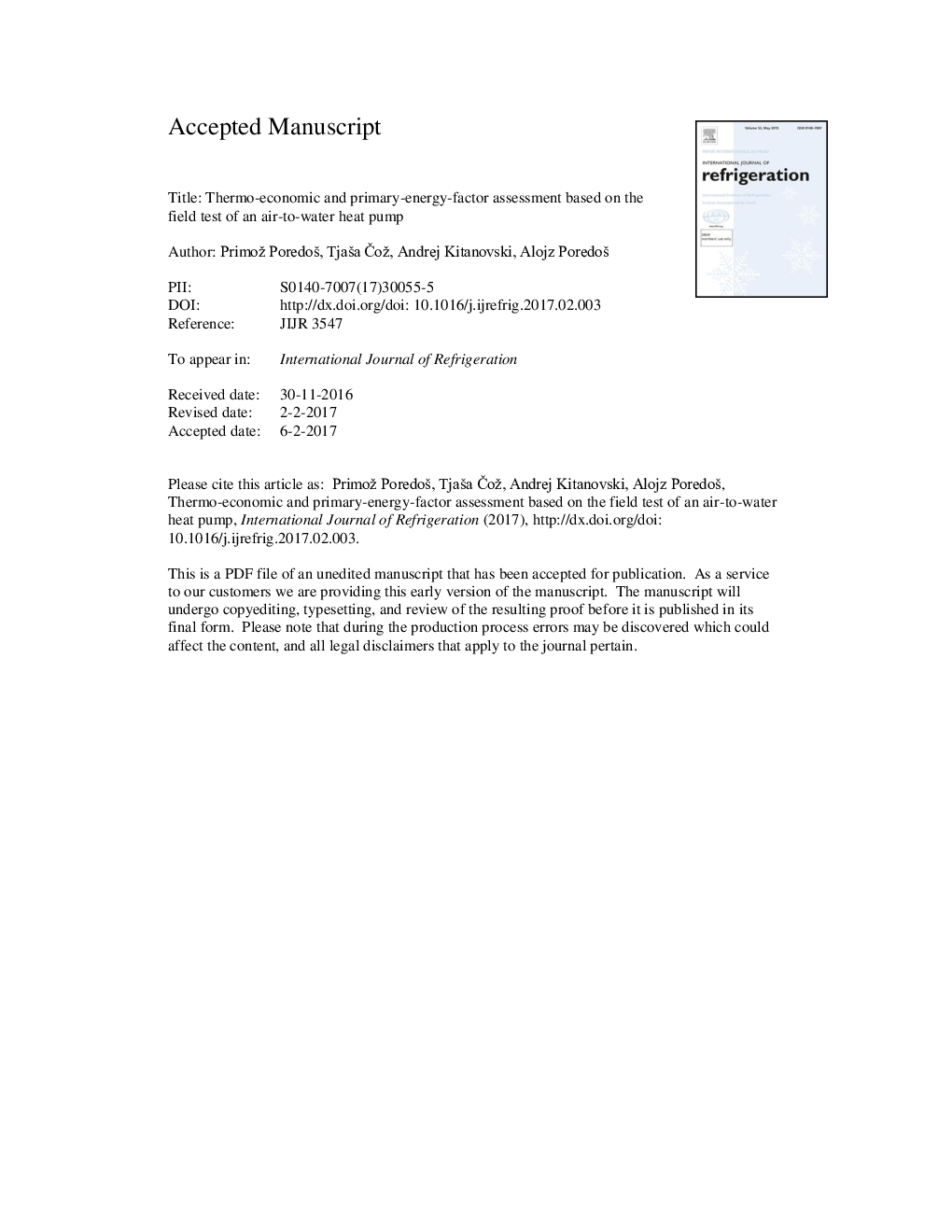| Article ID | Journal | Published Year | Pages | File Type |
|---|---|---|---|---|
| 5017107 | International Journal of Refrigeration | 2017 | 18 Pages |
Abstract
This paper presents the results of a thermo-economic and primary-energy-factor assessment based on the field-test results for a residential air-to-water heat pump (AWHP). The AWHP experimental setup consisted of a supervisory control and data-acquisition system, which was connected to a heat meter, an electricity meter, humidity and temperature sensors, a HP control system and a computer. Based on the experimental data, the 4-year-average seasonal performance factor was determined. This information was then applied in a thermo-economic and primary-energy-factor (PEF) analysis. The results served for a comparison of the AWHP with eight different heating systems (HSs). The results reveal that the considered AWHP represents the most thermo-economically efficient system in terms of the average final costs for heat production. The results of the PEF analysis reveal that the HS with the AWHP under investigation can be characterized as the most efficient system.
Keywords
Related Topics
Physical Sciences and Engineering
Engineering
Mechanical Engineering
Authors
Primož PoredoÅ¡, TjaÅ¡a Äož, Andrej Kitanovski, Alojz PoredoÅ¡,
